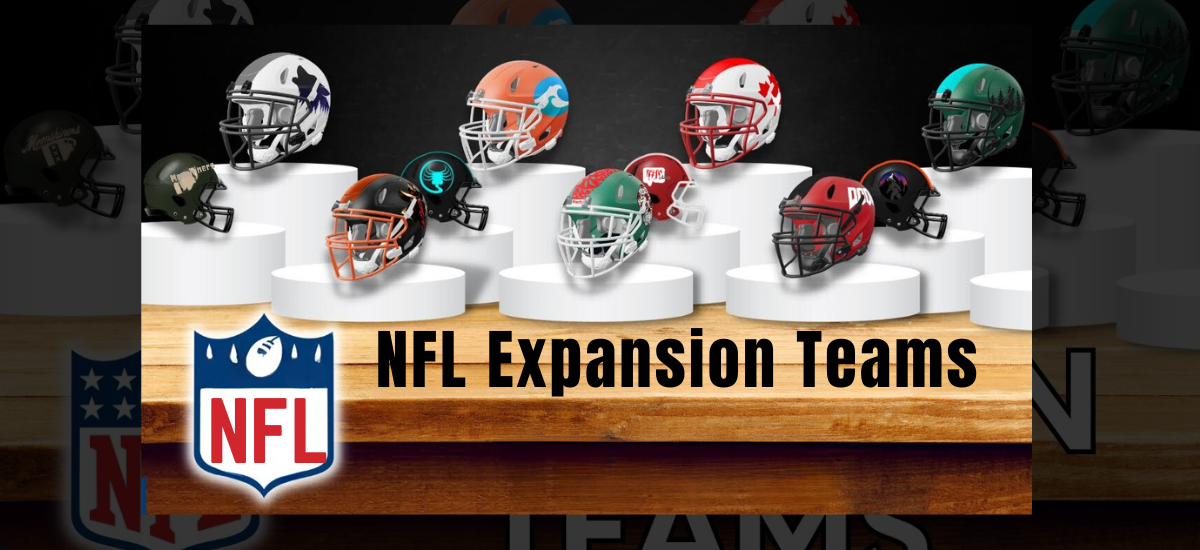The criteria for selecting cities for NFL expansion focus on several key factors that ensure the success and sustainability of a new team within the league. These criteria are designed to evaluate a city’s potential to support an NFL franchise effectively. Here’s a detailed explanation based on the information gathered:
Population Size
- Importance: A large population is crucial for supporting a new NFL team. It ensures a sufficient fan base to attend games, buy merchandise, and engage with the team through various media. A larger population also offers a broader demographic for marketing and sponsorship opportunities, which are vital for a team’s financial stability.
- Evaluation: Cities under consideration for NFL expansion are assessed for their population size to ensure they have the capacity to support the team. This includes not just the city’s immediate population but also the surrounding metropolitan area, which can significantly expand the potential fan base.
Existing Sports Culture
- Evaluation: The city’s current engagement with the Big 4 sports leagues (MLB, NBA, NHL, and NFL) and college football is closely examined. A strong existing sports culture indicates a passionate fan base and a community that values and supports sports. This factor assesses whether the city has the infrastructure, interest, and loyalty to support another major sports team.
- Importance: A city with a vibrant sports culture is more likely to successfully integrate an NFL team into its community. The presence of other major sports teams or a college football powerhouse can also provide insights into the city’s ability to host large sports events and its residents’ sports consumption habits.
Historical NFL Presence
- Consideration: Cities that have previously hosted NFL teams are given special consideration. This historical presence can indicate a latent fan base that may still have loyalty to the NFL and could be re-engaged with the introduction of a new team.
- Importance: A historical NFL presence can ease the transition for a new team, leveraging existing or former facilities and tapping into a nostalgic connection with the sport. It also provides valuable lessons and insights into the reasons behind the previous team’s relocation or dissolution, offering a foundation to build upon and avoid past mistakes.
Community Support And Engagement

- Public Interest: The NFL likely gauges public interest in hosting a new team through market research, surveys, and public forums. High levels of public interest and support are crucial for ensuring that a new team is welcomed and has a solid fan base from the outset. Community engagement activities and the presence of NFL-sponsored community programs, like those under NFL Green, can also serve as indicators of a city’s enthusiasm and readiness for an NFL team.
- Government and Local Authority Support: The willingness of local governments to support a new NFL team is assessed through their readiness to provide incentives, such as tax breaks, funding for stadium construction or renovations, and infrastructure improvements. This support is vital for overcoming logistical and financial hurdles associated with hosting a professional sports team.
Legal and Regulatory Environment
- Regulatory Hurdles: Identifying legal and regulatory issues involves examining local laws and regulations that could impact the establishment of a new NFL team. This includes zoning laws for stadium construction, environmental regulations, and any legal constraints on sports betting or team ownership structures. n regions where sports betting is a significant part of the sports culture, understanding the legal landscape becomes even more crucial, especially as online casino and sports betting platforms become increasingly integrated with sports franchises.
- Compliance with NFL Regulations: Cities and potential team owners must demonstrate their ability to comply with all NFL regulations, including those related to team operations, player conduct, and financial reporting. Compliance ensures the integrity and smooth functioning of the league.
Strategic Considerations for the NFL
- League Expansion Strategy: The addition of a new city must align with the NFL’s overall growth and expansion strategy, which aims to enhance the league’s domestic and international footprint. Strategic considerations include market size, geographic diversity, and the potential for building the NFL brand.
- Enhancing the NFL Brand: Evaluating how a team in a new city would contribute to the NFL’s brand involves assessing the market’s unique characteristics, including its cultural and economic landscape, to ensure that the new team adds value to the league’s image and appeal.
Long-term Sustainability
- Forecasting Long-term Success: Analyzing the long-term viability of a team in a city requires looking at economic, cultural, and demographic trends to ensure that the team can be successful over time. Factors such as economic stability, population growth, and sustained community support play critical roles.
- Environmental Impact Considerations: Understanding the environmental implications of establishing a new team includes assessing the impact of stadium construction and game-day operations on the local environment. The NFL’s commitment to environmental sustainability, as demonstrated by the NFL Green program, indicates the league’s awareness and proactive approach to minimizing the environmental footprint of its events and teams.
FAQs
Q1: How does the NFL determine public interest in a city for a potential new team?
A1: The NFL gauges public interest through various methods, including market research surveys, social media engagement, public forums, and the city’s history of supporting major sporting events. The league also considers the presence of NFL fan clubs and the viewership ratings of NFL games in the area.
Q2: What kind of government and local authority support is necessary for a city to host a new NFL team?
A2: Necessary support includes financial incentives, assistance with stadium construction or renovation, infrastructure improvements, and regulatory approvals. This support is crucial for overcoming the logistical and financial challenges of establishing a new team.
Q3: What are the major regulatory hurdles a city might face in hosting an NFL team?
A3: Major hurdles can include zoning laws for stadium construction, environmental regulations, and legal constraints on sports betting or team ownership. Each city’s specific legal and regulatory landscape can significantly impact the feasibility of hosting an NFL team.
